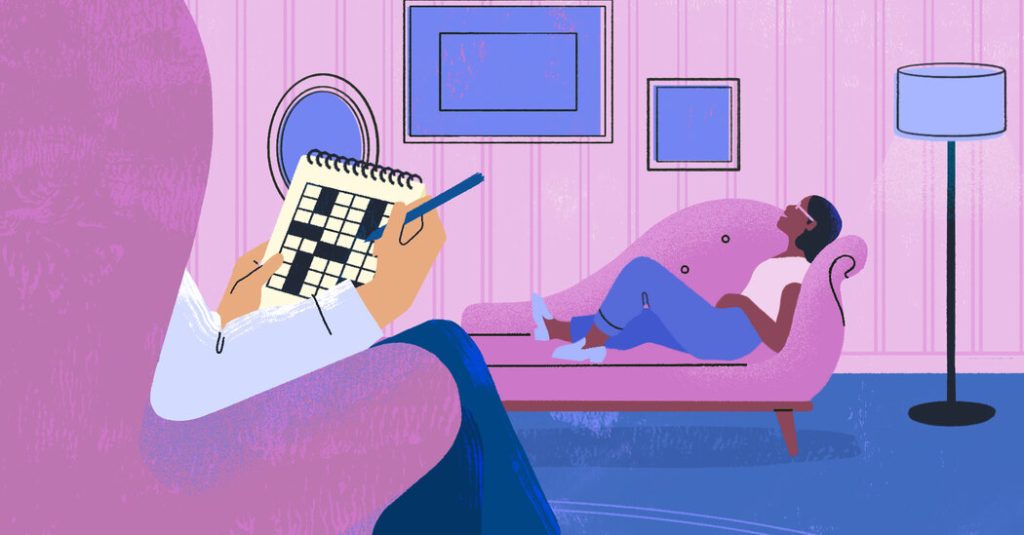The Problem of Unprofessional Therapists: Stories and Solutions
Therapy is a transformative experience for many, offering a safe space to explore emotions, challenges, and growth. However, not all therapeutic experiences are positive. Some individuals have found themselves in situations where their therapists were unprofessional, unethical, or even abusive. These stories highlight the challenges of navigating a system that is largely self-regulated and often lacks accountability.
Common Bad Experiences with Therapists
When The New York Times asked readers about their negative experiences with therapists, over 2,700 responses poured in. These stories included accounts of therapists falling asleep during sessions, engaging in inappropriate physical contact, or even pursuing sexual relationships with clients. For example, Melissa Petty, 71, recalled a therapist who fell asleep while she was discussing feelings of invisibility in her family. Others described therapists who were chronically late, ate during sessions, or failed to maintain professional boundaries. These behaviors not only undermine the therapeutic relationship but also leave clients feeling betrayed and unheard.
When a Therapist Gets Too Close: Boundary Violations
One of the most serious issues is when therapists cross professional boundaries. This can include inappropriate physical touch, flirting, or even emotional or sexual affairs. Deborah Lott, a volunteer with the Therapy Exploitation Link Line (TELL), shared her story of having a sexual relationship with her therapist in the 1980s. She explained how emotionally dependent she became, making it difficult to leave the relationship despite recognizing its toxicity. Experts emphasize that ethical therapists must always prioritize their clients’ well-being and maintain clear boundaries. Jan Wohlberg, a founder of TELL, stressed that it is always the therapist’s responsibility to set and maintain safe boundaries, regardless of the client’s actions or words. If a therapist fails to do so, it is a clear sign of misconduct.
When a Therapist Abandons Professionalism
Some therapists abandon professionalism entirely, behaving in ways that are dismissive, unprepared, or even bizarre. Leah Odette, 44, recalled a therapist who brought a dog to their session despite her fear of dogs. When the dog snapped at her, the therapist blamed her anxiety for the incident. Others shared stories of therapists who provided unnecessary or unqualified treatments, such as using E.M.D.R. (Eye Movement Desensitization and Reprocessing) for non-trauma-related issues. Emily, 34, described a therapist who stared out the window during their session, avoiding eye contact entirely. These behaviors not only fail to help but also erode trust and confidence in the therapeutic process.
When a Therapist Can’t Be Bothered
For some clients, the issue isn’t misconduct but a lack of engagement. Therapists who seem disinterested, distracted, or unprepared can make clients feel unseen and unheard. Erin, 30, described a therapist who tried to administer E.M.D.R. over Zoom for pandemic-related anxiety, a treatment she felt was inappropriate and ineffective. The session was further disrupted by a poor connection, leaving her feeling confused and unsupported. Similarly, many readers reported therapists who were consistently late, missed appointments, or ghosted them entirely. These actions convey a lack of respect for the client’s time and emotional needs.
What to Do If You’re Disappointed in Your Therapist
If you find yourself in a situation where your therapist is unprofessional, unethical, or simply not a good fit, it’s important to take action. Jessica M. Smedley, a clinical psychologist in Washington, D.C., advises clients to trust their instincts and seek a new therapist if the relationship isn’t working. If you believe an ethical boundary has been crossed, you can report the therapist to their licensing board. However, some situations may be less clear-cut, such as a therapist who occasionally falls asleep during sessions. In such cases, it may be helpful to address the issue directly with the therapist and observe their response. Dr. Jonathan E. Alpert, chair of the department of psychiatry at Montefiore Einstein, notes that a therapist who reacts defensively or fails to take feedback seriously is not someone you should continue working with.
A Final Note: The Importance of Advocating for Yourself
While there are many skilled and compassionate therapists who prioritize their clients’ well-being, the stories shared by readers highlight the need for greater accountability and support. If you or someone you know has had a negative experience with a therapist, resources like TELL are available to provide guidance and support. Ultimately, therapy is meant to be a safe and empowering space. If your therapist isn’t meeting these standards, it’s okay to seek help elsewhere. Trust your instincts, advocate for yourself, and remember that you deserve a therapeutic relationship that respects and supports your growth.


